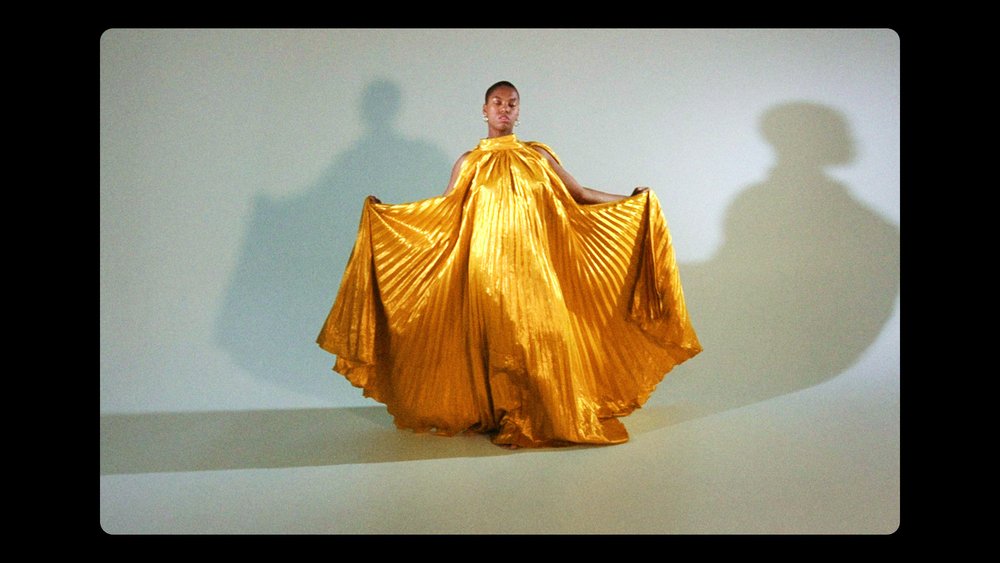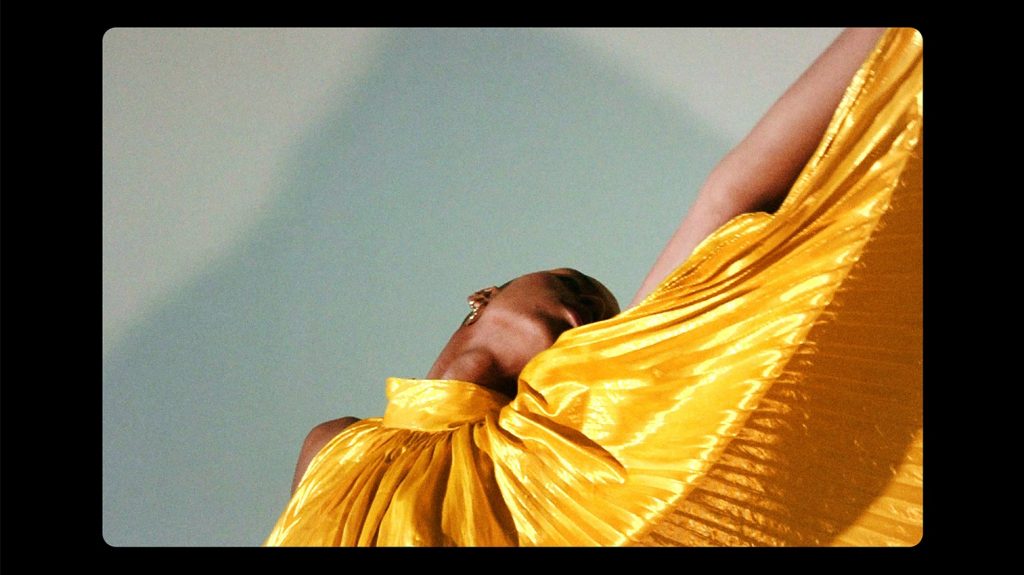#MeetTheArtist Tarona
During Art Rotterdam, you will see the work of hundreds of artists from all over the world. In this series, we highlight a number of artists who will show remarkable work during the fair.
Tarona's video artwork “Pivot” opens with a powerful English quote in purple against a black background: "When Black bodies are on the stage, Black perspectives must be reflected. This is not simply a matter of ‘artistic interpretation’; race and sex play a pivotal role in determining who holds the power to shape representation."

This quote was uttered by the award-winning American actress Tonya Pinkins, who previously received a prestigious Tony Award. She noted that her perspective as a Black woman was structurally ignored throughout her career, in favour of a different kind of portrayal of the Black woman: viewed through a filter of the white gaze.
The academic concept of 'the gaze' analyses a certain power relationship when one person is captured by another. The recorder determines how the portrayed person will be immortalised — and will be viewed by others in the future. This inequality is exacerbated when there is also another level of power inequality between these two people. In 1975, the British feminist film theorist Laura Mulvey first spoke about the 'male gaze', the way in which women are captured and viewed by men: often as a decorative (sex) object. Three years later, the term took on additional depth when literature professor Edward Said, founder of the field of Postcolonial Studies, published the book 'Orientalism'. Terms such as the "oriental gaze" or the "western gaze" are useful when referring to the ways in which people from non-Western countries were (and are) represented by the West; in many cases by their (former) colonial oppressors. These people were regularly portrayed and diminished as 'exotic' or 'uncivilized', to serve as a contrast, as 'the other'. In line with this, there is also the 'straight gaze' and the 'white gaze'. This terminology is important because it signals that the mere presence of (for example) people of colour does not automatically mean that there is a correct and balanced representation.

In this work, Tarona takes a closer look at Black performances in white spaces. How are Black people and people from the African diaspora (mis)represented? In the video artwork “Pivot”, we see a Black performer who resists the expectations of a white audience. In eleven minutes we see her dancing expressively in a striking golden dress that almost becomes a character in its own right. It seems like a contemporary interpretation of the famous 'Serpentine Dance' (1899) by the Lumière brothers, one of the very first coloured films, that was shot at an accelerated pace. However, the character in "Pivot" dances in slow motion. Tarona: “She occupies time and space, on her own terms. Since video is a time-bound medium, I chose to make this idea tangible by slowing down the visuals.”
Tarona was born in Curaçao and also uses her work as a way to explore her own identity. In her practice, the artist is inspired by the work of Johny Pitts, whose book 'Afropean' examines how Black and African diaspora identities are shaped in a European landscape. In her own research, Tarona often focuses specifically on Black Caribbean and South American identities in Europe, in all their versatility and complexity. In doing so, she searches for forms of representation and communality, in a landscape in which these identities are often invisible or erased.
You can view the video “Pivot" during Art Rotterdam in the Prospects exhibition of the Mondriaan Fund. For the 10th consecutive time, the Mondriaan Fund presents the work of 88 starting artists who received a financial contribution to start their career. Tarona studied at the School Of Visual Arts in New York and the Willem de Kooning Academy and her work has previously been shown in the 'Caribbean Ties' exhibition at the Museon in The Hague.
The video “Pivot” was made in collaboration with Chanel Vyent, Qianwei Tong, Sam van Eenbergen, Ivan Hidayat, Imane Saksou, Gaea Studio, de Makeover Factory en Captcha!.


